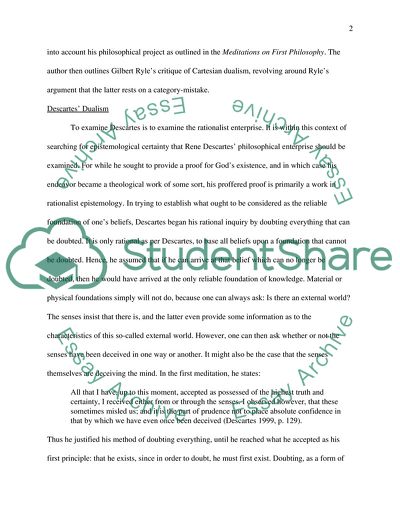Cite this document
(Critics to Dualism of Rene Descartes Essay Example | Topics and Well Written Essays - 1500 words, n.d.)
Critics to Dualism of Rene Descartes Essay Example | Topics and Well Written Essays - 1500 words. https://studentshare.org/philosophy/1713062-philosophy-body-and-mind-essay-1500words-questions-given
Critics to Dualism of Rene Descartes Essay Example | Topics and Well Written Essays - 1500 words. https://studentshare.org/philosophy/1713062-philosophy-body-and-mind-essay-1500words-questions-given
(Critics to Dualism of Rene Descartes Essay Example | Topics and Well Written Essays - 1500 Words)
Critics to Dualism of Rene Descartes Essay Example | Topics and Well Written Essays - 1500 Words. https://studentshare.org/philosophy/1713062-philosophy-body-and-mind-essay-1500words-questions-given.
Critics to Dualism of Rene Descartes Essay Example | Topics and Well Written Essays - 1500 Words. https://studentshare.org/philosophy/1713062-philosophy-body-and-mind-essay-1500words-questions-given.
“Critics to Dualism of Rene Descartes Essay Example | Topics and Well Written Essays - 1500 Words”. https://studentshare.org/philosophy/1713062-philosophy-body-and-mind-essay-1500words-questions-given.


